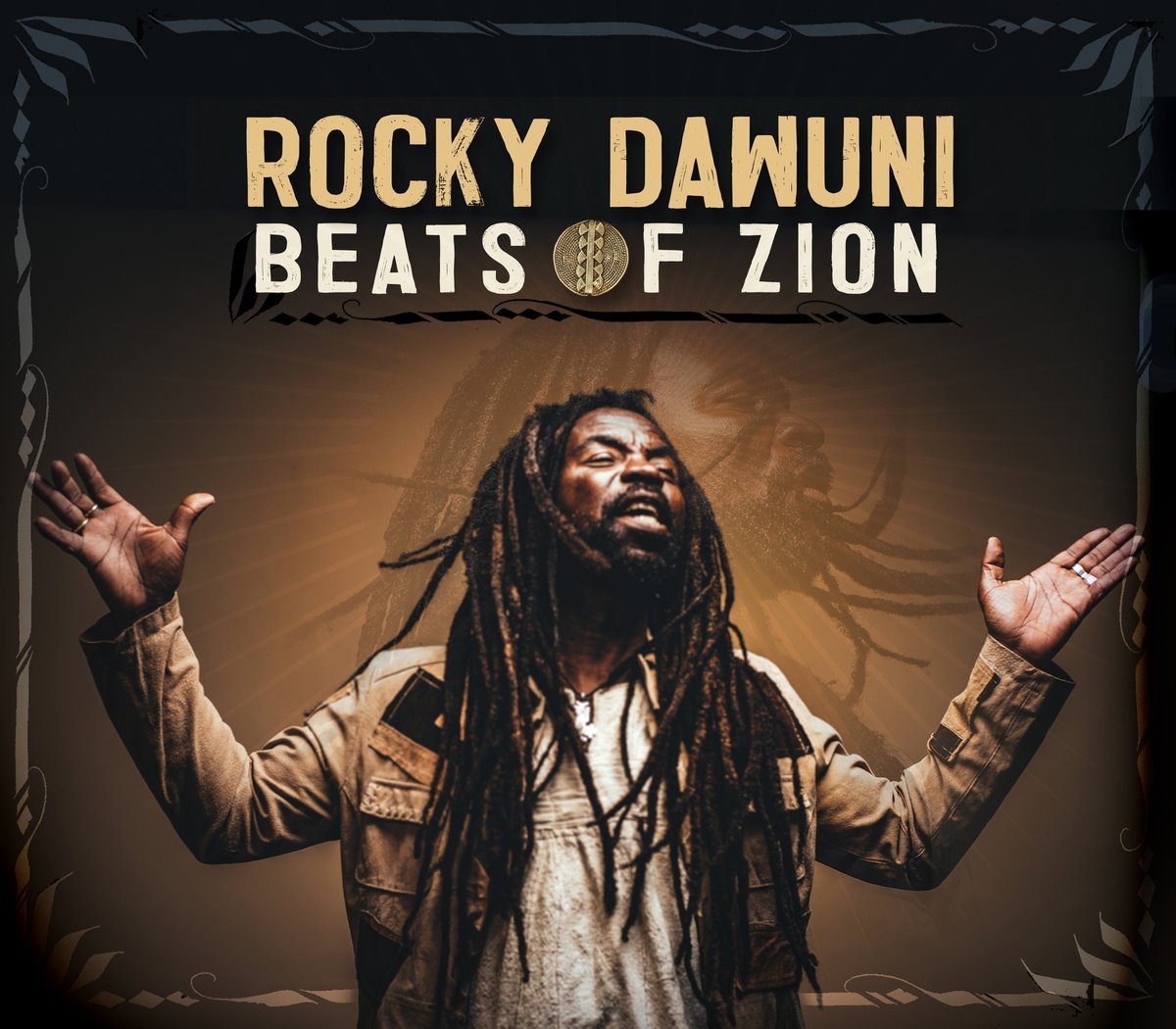Ghanaian artist and producer Rocky Dawuni is one of the world’s leading African artists, not only specialising in reggae music, but using his influence as a platform for activism. Last year, in 2018, he was named the UN Goodwill Ambassador of Africa. His seventh album titled Beats of Zion has been described as “the drumbeat of war against apathy, and re-energizing the forces of love and hope”, as Dawuni attempts to diversify his sound, based on his travels, to make his message more accessible.
“Beats of Zion” and “Champion Arise”, wise defiant tracks to open the album, were two of three songs recorded in Los Angeles’ Village Studios, where the likes of Fleetwood Mac (one of the few bands to visit Ghana in the 1970s) have also recorded their work. The third of these Village recordings is a welcome cover of Alhaji K. Frimprong’s classic highlife tune “Kyenkyen Bi Adi Mawu” (“Come Back My Love”), recorded as a tribute to Dawuni’s Ghanaian heritage. In this version, Latin colours via musicians from Belize, Brazil and Cuba are added to the palette, alongside some verses with dancehall artist Stonebwoy, to create something more radio-friendly without distracting from its heartfelt message.
“Elevation” is the only noticeable moment that can be described as beautifully sad – a call for us all to rise above the negative forces stopping us in our tracks, but with a broody melody that reminds us that we still have a long way to go. “Modern Man” takes a swipe at tech-savvy people who, despite so much access to information, choose to be complacent or corner themselves into seeing the world in black and white.
More social commentary continues throughout the album with “Mr Jones”, telling us to not answer to employers who cheat, steal and exploit. On the more superficial side of things, “Turn It Up” feels like a throwback to the early-to-middle 2000s; its bouncy bassline allowing it to rub shoulders along with beach party favourites by Beenie Man or Sean Paul.
Dawuni’s attempts at broadening his sound may not be obvious enough to convince people who find reggae monotonous that this isn’t the case. Similarly, the lack of emotional contrast means that all the uplifting moments could be underappreciated, as they blend together. But if you are at a low ebb and need a constant stream of reassurance, Beats of Zion should sit very well.


